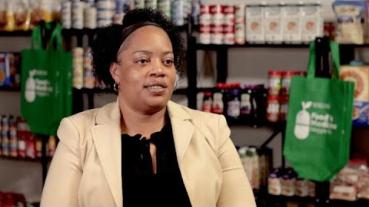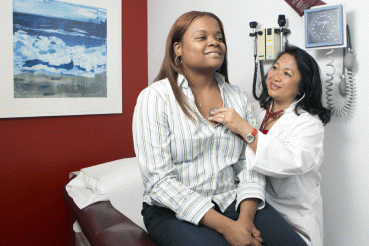An avid advocate for veterans, Ambassador Ron Gidwitz has helped the Road Home Program grow into what it is today.
Since becoming a Rush trustee in 1993, Ambassador Gidwitz has devoted countless hours to the mission and continues today as a Rush life trustee and a member of the Road Home Advisory Council. In 2015, he became the original chair of the Road Home Program Leadership Committee. He raised funds and awareness for the program, including more than $4 million that was instrumental in helping Rush match a $7.5 million grant from Wounded Warrior Project® to launch the program.
“I’ve always been sensitive to what happens to our military members and veterans, especially given that we’ve had a war in Afghanistan and Iraq that has gone on interminably,” said Gidwitz, who served as U.S. ambassador to the Kingdom of Belgium from 2018-2021. “Millions of young men and women have been called to serve. They come back, and all too frequently, their stories are sad and appalling.”
Moved by veteran suicide and veterans experiencing homelessness, Ambassador Gidwitz wanted to help.
“We’ve got an obligation as a nation to take care of these people,” he said. “And so, when Rush Trustee Bill Goodyear asked me if I’d get involved, it was not a hard decision. This was a unique opportunity to help people who can’t get this help elsewhere.”
In this leadership role, Ambassador Gidwitz called upon his experience as a businessman and civic leader, including his work as a founding member of the executive committee of the National Committee for Employer Support of the Guard and Reserve.
From the start, Ambassador Gidwitz knew the Road Home Program had great potential and was impressed by its strong clinical results.
“I was pleased to join and engage as the first chairman of the Road Home Leadership Committee, where I had the opportunity to recruit others,” he said. “And just as importantly to raise those early funds that allowed us to meaningfully demonstrate that Rush had a unique program worthy of support.”
In 2017, to begin his duties as an ambassador, Gidwitz passed the Road Home Leadership Committee torch to Co-Chairs Thomas Lanctot and William Mynatt — highly engaged committee members who stepped up and helped the Road Home continue its success.
“Tom and Bill are doing a sensational job keeping donors engaged and keeping momentum up,” Ambassador Gidwitz said. “The program became even more efficient and equally as successful through the transition from a three-week to a two-week treatment program and the addition of telemedicine services. More people can be served for essentially the same cost. The sad part, however, is that this is all philanthropic and private sector dollars funding the program and little, if any, funds from the Veterans Administration.”
Through continued work on the Road Home Advisory Council, the ambassador remains involved in the program’s sustainability efforts — especially through his advocacy work.
“I don’t need to have a title or an assignment,” the ambassador said. “My mission is to help as many veterans as possible. I find the appropriators who put money into the Veterans Administration who are interested in results. It’s a bipartisan issue with them. They want to see our veterans be properly taken care of.
“The Road Home Program is incredibly effective. It has extraordinary staff and a dedicated Leadership Committee. We can’t do enough, because we just don’t have the breadth. What I ultimately hope the federal government will do is reimburse us for our services and support us to teach other hospitals how to institute and implement this program. It would be much more efficient and cost-effective than current VA programs, and so many more families would benefit.”




